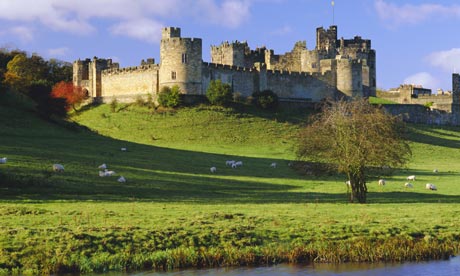- UK film needs a government subsidy and/or tax breaks
- this currently amounts to £110m a year ...
- which generates £1.3bn extra film-based revenue
- in total, the UK film industry generates £4.5bn, including £1.2bn which the government takes back as tax
- the industry directly employs 36,000 people (and the same again indirectly)
- in addition, UK films 'generate around 10% of revenues from overseas visitors, or around £1.9bn a year' (various examples are given of how individual films have created massive visitor surges)
- 'The report, called The Economic Impact of the UK Film Industry, and downloadable at the UK Film Council website, also emphasised the importance of Britishness to audiences. An indigenous film can expect 30% higher box office takings than a similar foreign film.'
When over well over $100m is spent on abysmal films such as the recent Terminator and Transformers sequels, they are virtually critic-proof; such is the level of CGI and SFX that many will view these simply for the spectacle they offer. (You should be thinking here about the concepts of the big 6 and the tentpole strategy, not to mention the horizontal integration, vertical integration and synergies available to a giant conglomerate such as News Corporation, with its subsidiary Twentieth Century Fox, the Avatar main production co)
You can read the full report for yourself at http://www.ukfilmcouncil.org.uk/media/pdf/j/i/The_Economic_Impact_of_the_UK_Film_Industry_-_June_2010.pdf and the article at http://www.guardian.co.uk/uk/2010/jun/07/report-warning-uk-film-tax-cuts
Economists defend UK film tax breaks
UK Film Council welcomes Oxford Economics report over concerns that ending filmmaking relief will cost economy
Mark Brown, arts correspondent guardian.co.uk,

Ending the tax relief given out to encourage filmmaking in the UK would cost the economy £1.4bn, a report on the economics of the British film industry warned today
.
The UK Film Council, which represents the industry, is concerned about the impact of possible government cuts. Its chief executive, John Woodward, said the 104-page report (pdf), by Oxford Economics, was "timely".
One of the industry's main concerns is any change to the tax relief for films made in the UK. Woodward said: "I don't think anyone in the British film industry is feeling paranoid that the tax relief is under threat, but these are very difficult times and what we do understand is that the government is going to weigh up everything."
The report makes a strong economic case for maintaining tax relief, stating that the benefits outweigh the cost. It costs around £110m a year, but without it GDP would be down by £1.4bn, it says. In other words, £13 GDP is generated for every £1 invested.
Tim Bevan, chairman of the film council, said the report highlighted the financial and cultural benefits of a vibrant film industry that was "firing on all cylinders". But there were challenges ahead: "We as an industry have to acknowledge that these are turbulent times," he said, "and because of digitisation, the economic downturn and collapse of television prices, the food chain is changing dramatically."
The report provides a mountain of statistics and case studies to show how beneficial the film industry is.
In terms of bald numbers, the report says that the UK film industry contributes more than £4.5bn a year to the nation's gross domestic product and £1.2bn to the exchequer. It is also important in terms of jobs, directly employing around 36,000 people – a rise of about 30% over 10 years – with the same number supported indirectly.
The report also explores the effect British films have on the tourist industry, concluding that they generate around 10% of revenues from overseas visitors, or around £1.9bn a year. Examples include visitor numbers at Alnwick castle, in Northumberland, going up 120% after the Harry Potter movies; a 75% increase in visitors to Basildon Park, in Berkshire, after Pride and Prejudice; and a marked increase in Japanese tourists to the Lake District after Miss Potter, to the extent that a Japanese tour guide was employed permanently by the tourist board.
The report, called The Economic Impact of the UK Film Industry, and downloadable at the UK Film Council website, also emphasised the importance of Britishness to audiences. An indigenous film can expect 30% higher box office takings than a similar foreign film.
The arts and creative industries minister, Ed Vaizey, welcomed the report. He said: "The creative industries are a British success story. They continue to grow, and the government sees the real potential they have to help our economy in the coming years.
"This report is evidence of how important British film is – to our economy as well as promoting our cultural life, our identity and diversity on the international stage."
No comments:
Post a Comment
Please ensure your posts are appropriate in tone and content! All comments are reviewed by the blog owner before being published.